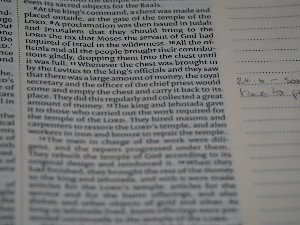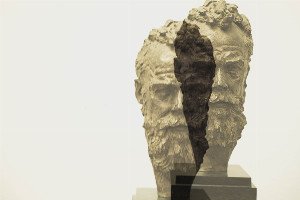Sheyra Silvia Siregar, Ria Riski Marsuki, Sheyla Silvia Siregar
A Translation Study of the Meaning and Aesthetics of Drama Subtitles of When We Were Young (人不彪悍枉少年) as Literary Works on WeTV Channel Indonesia: A Review of Literary Translation Theory
Introduction
A translation study of the meaning and aesthetics of drama subtitles of when we were young (人不彪悍枉少年) as literary works on wetv channel indonesia: a review of literary translation theory. Analyze "When We Were Young" drama subtitles (WeTV Indonesia) for meaning & aesthetics as literary works. Examines audiovisual translation of Chinese idioms for Indonesian audiences.
Abstract
This study aims to analyze the translation of the meaning and aesthetics of the subtitles of the drama When We Were Young (人不彪悍枉少年) aired on the YouTube channel WeTV Indonesia, as well as discuss the translation of this drama as a literary work. The main focus of this study is to understand how the translator overcame linguistic and cultural challenges in translating the dialog-drama which is full of Chinese idioms and cultural expressions into Indonesian. This research uses a descriptive qualitative approach with a case study design to analyze the subtitle texts. The data used are purposively selected drama subtitles from several episodes that contain idiomatic and metaphorical elements. Literary translation theories, such as equivalence theory by Nida (1964), domestication vs. foreignization theory by Venuti (1995), and audiovisual translation theory by Gottlieb (1994), are applied in this analysis to explore how translators balance between fidelity to the source text and the limitations of subtitle space. The study found that translators often adopt a domestication approach to ease the understanding of Indonesian audiences, while still trying to maintain the original aesthetics and cultural nuances of the source text. The findings make an important contribution to the study of literary translation, especially in the context of audiovisual translation which requires attention to linguistic and cultural aspects simultaneously.
Review
This study presents a timely and relevant exploration into the intricate process of translating drama subtitles, specifically focusing on "When We Were Young" on WeTV Indonesia. The authors aim to meticulously analyze the preservation of meaning and aesthetics in the Indonesian subtitles, while also positioning these translations as literary works in their own right. The research adeptly targets the core challenges faced by translators when rendering culturally rich Chinese idioms and expressions into Indonesian, utilizing a descriptive qualitative approach and a case study design. This focus on popular audiovisual content and its translation for a global audience makes the study particularly pertinent to contemporary translation studies. A significant strength of this research lies in its robust theoretical grounding, employing established frameworks such as Nida's equivalence theory, Venuti's domestication vs. foreignization, and Gottlieb's audiovisual translation theory. This multi-faceted theoretical lens allows for a comprehensive analysis of the translators' strategies in balancing fidelity to the source text with the inherent constraints of subtitle presentation. The finding that translators often opt for domestication to enhance audience comprehension, while striving to retain original aesthetics and cultural nuances, offers valuable insight into practical translation decisions. This detailed application of theory to concrete examples of linguistic and cultural transfer makes a substantial contribution to both literary and audiovisual translation discourse. While the study effectively highlights the domestication approach and its rationale, future research could potentially delve deeper into specific instances where foreignization might have been considered or applied, and the perceived impact on audience reception or cultural enrichment. Further elaboration on what precisely qualifies these subtitles as "literary works" beyond their aesthetic translation would also strengthen this claim. Nevertheless, the study's methodical analysis of linguistic and cultural challenges, coupled with its strong theoretical application, successfully illuminates the complexities of subtitling as a specialized form of literary translation. Its findings are valuable for practitioners, educators, and researchers in the field of translation studies, particularly those interested in the dynamic interplay between language, culture, and media.
Full Text
You need to be logged in to view the full text and Download file of this article - A Translation Study of the Meaning and Aesthetics of Drama Subtitles of When We Were Young (人不彪悍枉少年) as Literary Works on WeTV Channel Indonesia: A Review of Literary Translation Theory from Longda Xiaokan: Journal of Mandarin Learning and Teaching .
Login to View Full Text And DownloadComments
You need to be logged in to post a comment.
Top Blogs by Rating
Phantom Power: Unmasking Your...
By Sciaria
Beyond the Stereotype: Unpacki...
By Sciaria
Your Dynamic DNA: The Adapting...
By Sciaria
Favorite Blog
Ops Debt: Unmasking the Silent...
By Sciaria
Unleash Your Inner Explorer: T...
By Sciaria
The Unspoken Wisdom: Embracing...
By Sciaria
Related Research
Decision support system in the election of the osis chairman
Subscriptions
Cultural chronicles – uncovering the legacy of oppressive black architecture in memphis and other cities
Share
Notice Board
- PENGARUH MODEL PROJECT BASED LEARNING TERHADAP KEMAMPUAN PEMECAHAN MASALAH MATEMATIS SISWA
- ENHANCING MANDARIN SPEAKING SKILLS THROUGH JOB INTERVIEW SIMULATIONS FOR STUDENTS IN THE MBKM MSIB SELECTION PROGRAM
- EXPLORING THE INTEGRATION OF AUGMENTED REALITY IN PROGRAMMING EDUCATION TO ENHANCE STUDENT ENGAGEMENT IN HIGH SCHOOLS





